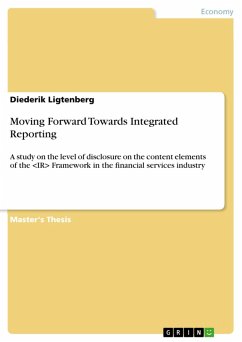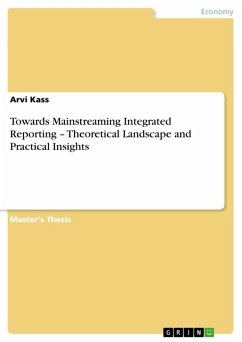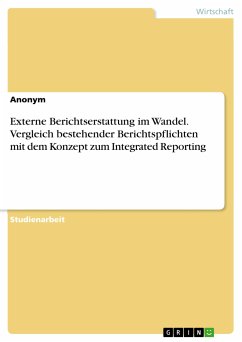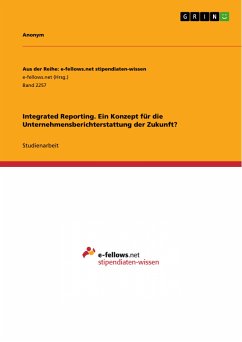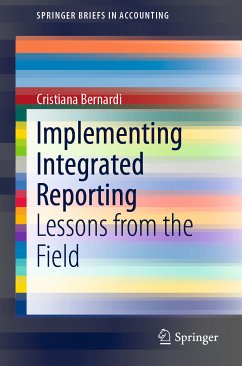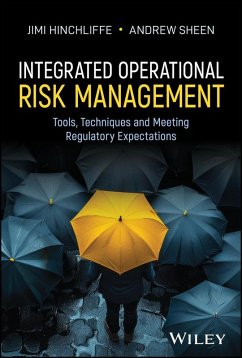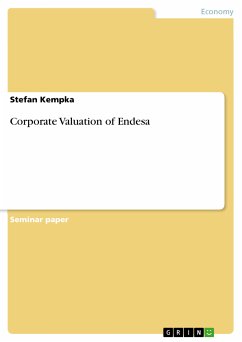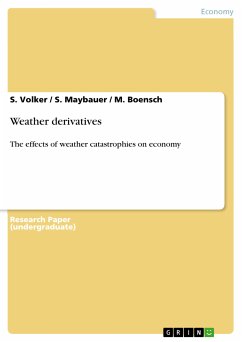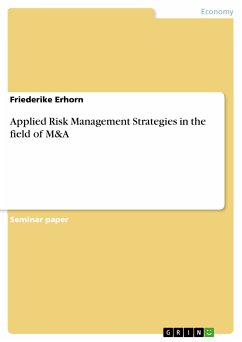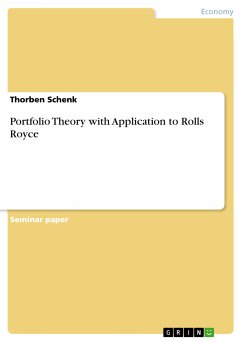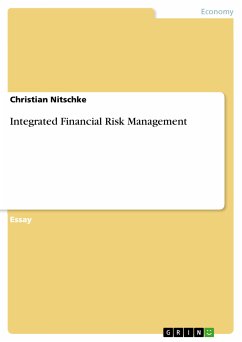
Integrated Financial Risk Management (eBook, PDF)

PAYBACK Punkte
0 °P sammeln!
Essay from the year 2003 in the subject Business economics - Investment and Finance, grade: 1,7 (A-), Stellenbosch Universitiy, language: English, abstract: The objective of an Integrated Risk Management System is to maximise shareholder value. Shareholder Value is mainly determined by t he Market Value (MV) which is the most aggregated measure for the value of a company. MV is influenced by future cash flows which are exposed by the risk of Exchange Rate changes. This risk can be hedged by using financial instruments such as derivatives or it can be minimized by applying operational hedging w...
Essay from the year 2003 in the subject Business economics - Investment and Finance, grade: 1,7 (A-), Stellenbosch Universitiy, language: English, abstract: The objective of an Integrated Risk Management System is to maximise shareholder value. Shareholder Value is mainly determined by t he Market Value (MV) which is the most aggregated measure for the value of a company. MV is influenced by future cash flows which are exposed by the risk of Exchange Rate changes. This risk can be hedged by using financial instruments such as derivatives or it can be minimized by applying operational hedging which involves strategic considerations like plant locations and sources of input. The business of the company assumed in this case consists of Export & Import trades to a variety of countries as well as of Equity Investments in Africa and Asia. An assessment of the countries and areas shows actual economical and political developments to evaluate the most efficient Risk Management decisions. By looking at the Direct Economical Exposure the extent by which the company is threatened by Exchange Rate changes is examined. Furthermore the Value at Risk approach and the Scenario method is explained and applied to draw a picture of the size and likelihood by what extent the enterprise is exposed to Financial Risks. It is suggested to use the Dynamic Hedging technique to overcome fluctuating cash flows. Another proposal is to apply Multi-Currency Accounting which supports the company to comply with regulatory standards and provide management information to efficiently control foreign business.
Dieser Download kann aus rechtlichen Gründen nur mit Rechnungsadresse in A, B, BG, CY, CZ, D, DK, EW, E, FIN, F, GR, HR, H, IRL, I, LT, L, LR, M, NL, PL, P, R, S, SLO, SK ausgeliefert werden.




